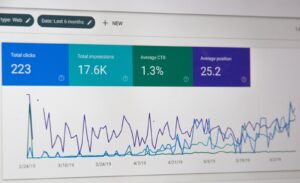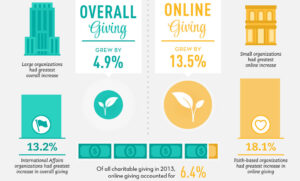27 Ideas For Church Software!

27 Ideas For Church Software!
In today’s fast-paced digital world, churches face challenges in managing operations and meeting congregational needs. Manual administration and communication can be time-consuming and prone to errors. However, there is a solution that can help optimize your church’s management.
Imagine streamline administrative tasks, efficient event organization, seamless financial management, and effective member communication. With the right software programs your church can become a well-oiled machine that maximizes efficiency, productivity, and engagement.
In this blog post, we present 27 compelling ideas for why your church needs software solutions. From streamlining tasks and enhancing communication to fostering member engagement and improving financial management, these software solutions empower your ministry in unprecedented ways.
What is Church Software?
Church software refers to a collection of digital tools and applications specifically designed to meet the unique needs of churches and religious organizations. It encompasses a wide range of software solutions that streamline and automate various administrative, communication, and operational tasks within a church setting.
At its core, church software aims to simplify and centralize the management of essential church functions, such as membership records, event planning, volunteer coordination, donation tracking, sermon management, and communication with the congregation. These software programs often offer user-friendly interfaces, intuitive dashboards, and customizable features to cater to the specific requirements of each church.
1. Streamline Membership Management
Easily manage member profiles, track attendance, and keep accurate records of baptism, confirmation, and other significant milestones.
Church software takes the hassle out of membership management, making it a Breeze to track attendance, store vital records, and have a wealth of information at your fingertips. So, say hello to a streamlined and organized church family, and goodbye to the headache of manual record-keeping.
Let technology do the heavy lifting, so you can focus on what truly matters – serving your congregation with love, laughter, and a side of heavenly software solutions.
2. Efficient Event Planning
Simplify event management by creating event schedules, managing registrations, sending automated reminders, and tracking attendance.
In a nutshell, church software transforms event planning from a stressful endeavor to a joyous celebration. It simplifies scheduling, streamlines registrations, ensures attendance and keeps everyone in the loop.
So, grab your planning hat, fire up your creativity, and let church software be your trusty sidekick in orchestrating unforgettable events that bring your congregation closer and leave them eagerly awaiting the next one.
3. Volunteer Coordination
Volunteer Coordination is 1 of 5 essential features every Church Management Software needs. Effectively organize and communicate with volunteers, assign tasks, track volunteer hours, and recognize their contributions.
Church software takes the stress out of volunteer coordination, making it a delightful experience for both you and your dedicated volunteers. It simplifies organization, enhances communication, tracks hours, and ensures that every superhero’s efforts are recognized.
So, assemble your volunteer dream team, unleash the power of technology, and watch as your church thrive with the unstoppable force of a united and coordinated army of love and service.
4. Simplified Donor Management
Keep track of donations, generate tax receipts, and maintain donor records for effective stewardship and fundraising efforts.
church software simplifies donor management, making it a seamless and efficient process. From tracking donations and generating tax receipts to maintaining comprehensive donor records, it empowers you to practice effective stewardship and optimize fundraising efforts.
So, bid farewell to the chaos of manual record-keeping and embrace the digital era of donor management. With the power of software solutions, you can nurture relationships, express gratitude, and make your church’s fundraising endeavors a resounding success.
5. Seamless Communication
Utilize email newsletters, SMS notifications, and mobile apps to communicate important updates, prayer requests, and upcoming events to your congregation.
church software revolutionizes communication within your congregation, making it seamless, convenient, and effective. Whether it’s sharing important updates, rallying support for prayer requests, or keeping everyone informed about upcoming events, technology becomes your trusty ally.
So, embrace the power of software solutions, and watch as communication becomes a joyous dance, connecting hearts, minds, and spirits in a harmonious rhythm.
6. Enhanced Sermon Management
Create and organize sermon libraries, publish sermons online, and easily access past sermons for reference or sharing.
church software enhances sermon management, providing a digital sanctuary where your sermons are organized, accessible, and easily shared. From organizing sermon recordings and incorporating multimedia elements to livestreaming and simplifying sermon planning, technology becomes your trusted partner in delivering impactful messages.
So, embrace the power of software solutions, and watch as your sermons soar to new heights, touching hearts, inspiring minds, and transforming lives.
7. Resource and Asset Management
Keep track of church assets, equipment, and facilities, schedule maintenance, and manage inventory efficiently.
Church software empowers you to effectively manage and track your resources and assets. From organizing inventory and streamlining reservations to budgeting and analyzing usage patterns, technology becomes your trusted assistant in resource management.
So, bid farewell to the frustration of misplaced equipment and the headaches of manual tracking. Embrace the power of software solutions, and watch as your resource management practices become efficient, organized, and hassle-free, allowing your church to focus on its core mission and ministry.
By leveraging resource and asset management software, churches can ensure the efficient utilization of their resources, enhance accountability, and optimize their operations.
Effective resource management facilitated by church software supports the purpose of the church by enabling smooth operations and enhancing the overall experience for members and attendees.
8. Accounting
Manage church finances, track expenses, create budgets, and generate financial reports for better financial stewardship and transparency.
Church software revolutionizes financial tracking, providing a digital solution that saves time, improves accuracy, and enhances transparency. For example, a church can utilize a church software solution that includes accounting features like budgeting, expense tracking, and financial reporting.
Embrace the power of software solutions, and watch as your church’s financial management practices become more efficient, informed, and aligned with your mission and stewardship.
By utilizing accounting software, churches can efficiently manage income and expenses, generate financial reports, track expenses against budgets, manage donations, and integrate with other financial systems.
This enables church leaders to make informed financial decisions and ensures transparency and accountability in managing the church’s resources.
9. Online Giving
Provide convenient and secure online donation options for members to contribute to the church’s mission.
church software empowers your congregation with the convenience and flexibility of online giving. From providing secure payment options and automating record-keeping to fostering donor engagement and offering automated giving features, technology becomes a catalyst for financial stewardship and generosity.
Church software often includes features for designating funds and tracking donations for specific purposes or projects. Donors can specify where their contributions should be allocated, such as tithes, missions, building funds, or special campaigns.
This transparency and customization allow members to support causes that resonate with their hearts. For example, the software can provide a dropdown menu during the online giving process, allowing donors to select the fund or purpose for their donation.
Online giving facilitated by church software allows churches to enhance financial stewardship, simplify donation processes, and empower members to participate in the purpose of the church through their financial contributions.
10. Church Directory
Create an up-to-date directory with member contact information and photos for better connection and networking within the congregation.
church software enhances your church directory, transforming it into a dynamic and interactive tool that fosters connections and strengthens community. From maintaining up-to-date contact information and allowing members to update their details to including additional details and integrating photos, technology becomes the bridge that brings your congregation closer.
Embrace the power of software solutions, and watch as your church directory becomes a valuable resource that facilitates networking, celebrates milestones, and deepens the bonds within your church family.
11. Children and Youth Ministry Management
Organize programs, track attendance, communicate with parents, and ensure a safe and nurturing environment for children and youth.
Church software can greatly enhance the management of children and youth ministries, providing a streamlined and efficient experience for both staff and parents. For instance, through an integrated database system, the software can securely store and manage crucial information such as medical records, allergies, and emergency contact details for each child, ensuring quick access in case of any unforeseen circumstances.
Additionally, church software can facilitate the online registration and check-in process, eliminating the need for manual paperwork and long queues. This allows parents to pre-register their children, saving time and ensuring a smoother experience upon arrival.
For instance, parents can use a mobile app to register their child for a specific event, such as a vacation Bible school, and receive a unique QR code. Upon arrival, they can simply scan the QR code at a self-check-in kiosk, instantly printing their child’s name tag and security receipt.
12. Small Group Management
Facilitate the organization and administration of small groups, track attendance, and encourage deeper community engagement.
church software streamlines small group management by simplifying group creation and enrollment, centralizing communication, tracking attendance, facilitating resource sharing, and providing insightful data and reporting capabilities.
These features empower small group leaders to focus on fostering meaningful connections and discipleship within their groups, ultimately leading to stronger and more vibrant small group communities within the church.
13. Syncing Praise and Worship
Synching praise and worship is a crucial aspect of church services. Praise and worship software can great improve the timing and band coordination.
Worship leaders can use the software to organize and categorize their song repertoire, making it easy to access and select songs for each service.
For example, the software can allow worship leaders to create setlists and attach chord charts or sheet music to ensure that all team members are on the same page.
Church software can also simplify the process of managing different versions or arrangements of songs.
For instance, if a worship team decides to change the key or arrangement of a song, the software can update all associated documents and resources automatically, eliminating the need for manual editing and distribution. This streamlines the process and ensures consistency across the worship team.
14. Online Registrations
Enable easy online registrations for events, classes, workshops, and programs, eliminating the need for manual paperwork and data entry.
Church software plays a crucial role in streamlining the process of online registrations, making it easier for both church administrators and participants.
For instance, a church hosting a youth retreat can use the software to create a registration form that collects participant names, emergency contact information, dietary restrictions, and preferred accommodation options.
Furthermore, church software greatly facilitates the process of online registrations by providing customizable registration forms, integrating with online payment systems, automating confirmation emails, offering reporting capabilities, and managing capacity limits.
These features save time, enhance participant experience, and provide valuable data for event planning and management.
By leveraging the power of church software, churches can efficiently handle registrations for various events, programs, and activities while ensuring a seamless and user-friendly registration process for participants.
15. Church Calendar

Maintain a centralized calendar to keep members informed about upcoming events, services, meetings, and other important dates.
Integrating a church calendar within church software brings numerous benefits, enhancing organization and communication within the church community.
By centralizing the church calendar, software allows administrators to manage and update event details in one place, ensuring accuracy and consistency across all platforms.
For example, a church using software can create a calendar event for a community outreach program, inputting relevant information such as the date, time, location, and description.
The calendar becomes a powerful tool that keeps the congregation informed, simplifies scheduling, and encourages active participation in the church community.
16. Automated Reminders

Send automated reminders for events, volunteer commitments, and other important deadlines, reducing no-shows and improving engagement.
Church software provides a valuable feature of automated reminders, which significantly improves communication and helps keep church members informed and engaged.
For instance, using church software, event organizers can schedule automated reminders for upcoming church events, such as Sunday services or small group meetings.
These reminders can be sent via email, text message, or push notification, ensuring that individuals receive timely notifications and do not miss important gatherings.
By scheduling reminders for upcoming events, volunteer commitments, important deadlines, personalized opportunities, and offering customization options, church software simplifies the process of keeping members informed and connected.
These automated reminders help ensure active participation, minimize missed opportunities, and create a more efficient and organized church environment.
17. Church Blog or Website:

Create an engaging online presence with a church website or blog to share updates, resources, sermons, and event information.
For churches venturing into the online realm or those with limited online experience, church software that includes web hosting capabilities can be a game-changer in maintaining a church website or blog.
Web hosting through church software offers a simple and comprehensive solution, providing all the necessary tools and resources to establish and manage an online presence.
For example, a church that is just getting started online can utilize church software’s web hosting feature to create a professional website with customizable templates, allowing them to showcase their mission, beliefs, and upcoming events.
Church software with web hosting capabilities is an ideal solution for churches venturing into the online world or those with limited online experience. It simplifies the process of establishing and maintaining a church website, providing user-friendly website builders, reliable hosting services, secure donation integration, and customization options.
By leveraging the power of church software’s web hosting feature, churches can create a professional and engaging online presence, extending their reach and impact to a broader audience.
18. Prayer Request Management:

Provide a platform for members to submit prayer requests, enabling the congregation to support and uplift one another.
Church software centralizes and organizes prayer requests, allowing church staff or designated prayer teams to efficiently manage and prioritize them. Prayer requests can be categorized based on urgency, type of request, or specific ministries.
This helps ensure that no prayer request goes unnoticed or forgotten, enabling the church to effectively respond to the needs of their congregation.
For instance, the prayer team can use church software to filter and view all prayer requests related to health concerns or financial struggles, enabling them to provide focused prayers and support.
By leveraging the power of church software, churches can efficiently handle and respond to the prayer needs of their congregation, fostering a culture of intercession, support, and spiritual care.
20. Online Training and Education

Provide online courses, Bible studies, and resources to facilitate ongoing spiritual growth and education for members.
Church software opens up exciting possibilities for online training and education, enhancing the learning experience for church members and equipping them for their spiritual growth.
With church software, churches can create and deliver online courses or training modules on various topics, such as biblical studies, leadership development, or practical skills.
For example, a church can offer an online course on effective prayer, providing instructional videos, study materials, and interactive quizzes.
By utilizing church software, churches can effectively deliver educational content, empower their members with knowledge and skills, and foster continuous spiritual growth and development.
The online training and education facilitated by church software brings flexibility, engagement, and accessibility, making learning an engaging and enriching experience for the church community.
21. Church Surveys and Feedback

Conduct surveys and collect feedback from members to gain insights, improve programs, and understand the needs of the congregation.
Church software provides valuable tools for conducting surveys and gathering feedback from church members, enabling churches to better understand their congregation’s needs, preferences, and experiences.
With church software, churches can easily create and distribute online surveys, covering various aspects of church life, ministry effectiveness, or event feedback.
For example, a church can create a survey to gather feedback on a recent sermon series, asking participants about the relevance, clarity, and impact of the messages.
By leveraging the power of church software, churches can gain valuable insights, understand the needs and preferences of their congregation, and make informed decisions to enhance ministry effectiveness and engagement.
Surveys and feedback facilitated by church software empower the church community to actively participate in shaping the church’s direction and create a more inclusive and responsive church environment.
22. Church Library Management:

Organize and manage a church library, track borrowed books, and facilitate resource sharing among members.
Church software often includes features for barcode scanning or ISBN lookup, enabling churches to quickly and accurately add items to the library catalog.
This streamlines the process of inventory management and ensures that the library’s collection is up-to-date and well-documented.
For instance, a church librarian can use the software’s barcode scanning feature to add new books to the library simply by scanning their barcodes.
Organizing the church’s library through church software ensures that valuable resources are readily available, empowering individuals to deepen their knowledge and enrich their faith journey.
23. Multimedia Presentations:

Easily create multimedia presentations for worship services, incorporating songs, videos, and visual elements.
With church software, churches can easily create dynamic and visually appealing presentations by integrating various multimedia elements like images, videos, and slides.
For example, a church can use the software to create a multimedia presentation for a sermon, incorporating relevant Bible verses, impactful visuals, and video clips.
Church software often includes features for slide creation and editing, providing intuitive tools and templates to design professional-looking slides.
This saves time and effort for church staff or volunteers responsible for creating presentations.
Churches can store and manage their collection of worship songs, sermon videos, or presentation slides within the software.
This streamlines the process of selecting and incorporating multimedia elements into presentations.
For example, a worship leader can use the software to quickly access and insert the lyrics and background visuals for a specific song during a church service.
24. Multi-Campus Management:

Simplify the management of multiple church campuses, including communication, event coordination, and resource sharing.
For example, a church with satellite campuses can use the software to oversee various ministries, events, and volunteer schedules across all locations.
Church software often includes features for centralized content management, allowing churches to create and distribute consistent messaging and resources across multiple sites.
This ensures a unified brand and message, enhancing the sense of community and cohesion among church members.
By leveraging the power of church software, churches can streamline operations, enhance communication, and foster a sense of unity across different sites.
Managing multiple sites on one platform facilitated by church software allows churches to optimize resources, maintain consistency in messaging, and effectively carry out their purpose of spreading the message of faith and community across various locations.
25. Virtual Attendance Tracking:

Offer virtual attendance tracking for online services and events, ensuring accurate records and engagement measurement.
Church software offers significant advantages in tracking online attendance, making it easier for churches to monitor and engage with their online congregation.
Church software often includes features for automated attendance tracking, eliminating the need for manual data entry. This saves time and effort for church staff or volunteers responsible for attendance management.
For instance, the software can automatically log attendance when participants join an online meeting or access a virtual event platform.
Tracking online attendance facilitated by church software allows churches to adapt their online strategies, foster meaningful connections, and fulfill the purpose of reaching and serving their congregation, both in-person and online.
26. Analytics and Reporting:

Generate detailed reports and analytics on various church metrics, such as attendance trends, giving patterns, and ministry impact, for informed decision-making.
Church software offers unique opportunities through analytics and reporting, empowering churches to gain insights and make data-driven decisions to enhance their purpose and engagement.
For example, a church can use the software to generate reports that show attendance trends during different seasons or analyze giving patterns to identify areas of growth or decline.
Church software often provides customizable dashboards and visualizations, allowing churches to easily interpret and present data in a meaningful way. This enables leaders to understand key metrics at a glance and track progress towards their goals.
For instance, the software can display a visual dashboard that shows metrics like attendance, volunteer participation, and giving amounts, providing a comprehensive snapshot of the church’s health and growth.
Analytics and reporting facilitated by church software allow churches to make data-driven decisions, personalize communication, measure impact, and ultimately fulfill their purpose of reaching and serving their congregation effectively.
To learn more about what metrics are most important to track, check out our article here!
27. Data-driven Decision Making

Use analytics and data insights to make informed decisions about ministry strategies, resource allocation, and member engagement initiatives.
Church software plays a crucial role in helping church leaders make wise decisions about complex challenges through real-time data analysis.
For example, by analyzing data on volunteer participation and engagement, leaders can identify areas where volunteer recruitment or retention strategies may need improvement and implement targeted interventions.
Data-driven decisions also help churches allocate resources effectively. By analyzing giving patterns, financial reports, and ministry expenses, church leaders can ensure that resources are allocated in a way that aligns with the church’s mission and priorities.
By leveraging the power of data, leaders can gain insights into attendance trends, demographic composition, financial patterns, and ministry effectiveness.
This data-driven decision-making process helps leaders respond to the needs of their congregation, allocate resources effectively, and foster transparency and accountability.
Ultimately, by making data-driven decisions, churches can enhance their purpose, engage their congregation, and better fulfill their mission.
Conclusion
The use of software solutions in churches is no longer a luxury but a necessity. Throughout this blog post, we have explored a comprehensive list of reasons why every church should consider implementing software solutions to enhance their operations, engage their members, and expand their impact.
From streamlining administrative tasks and improving communication to empowering volunteer management, online giving, and resource tracking, church software offers a wide array of benefits. It simplifies processes, saves time, enhances efficiency, and fosters a stronger sense of community within the congregation.
The Humble Perspective strives to empower churches with valuable insights and practical guidance on leveraging technology for their growth and impact. Our expertise in church management, digital solutions, and industry trends equips us to provide reliable and informed recommendations.
By embracing the power of software solutions, your church can focus on its core mission of spreading love, faith, and spiritual growth, while leaving the administrative burdens to efficient and reliable digital tools. I invite you to explore the possibilities and take the necessary steps toward implementing software solutions that will propel your church into a new era of effectiveness and impact.

















Great insight!
Leveraging technology as a tool to connect is mandatory with the existing demographic. Anything that can further minister to or free up time for the people of the church (visitors included) is worth pursuing.
Hey thanks Jackson! I appreciate you, friend. Continue to be strong in the Lord. Praying peace and blessing over you and your family.